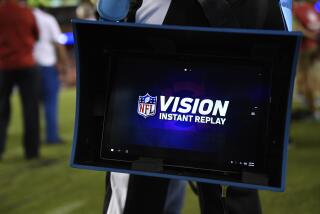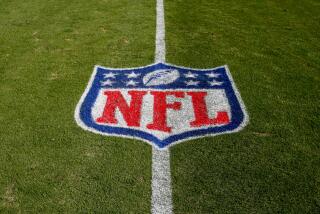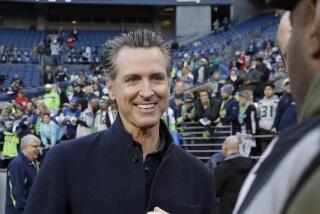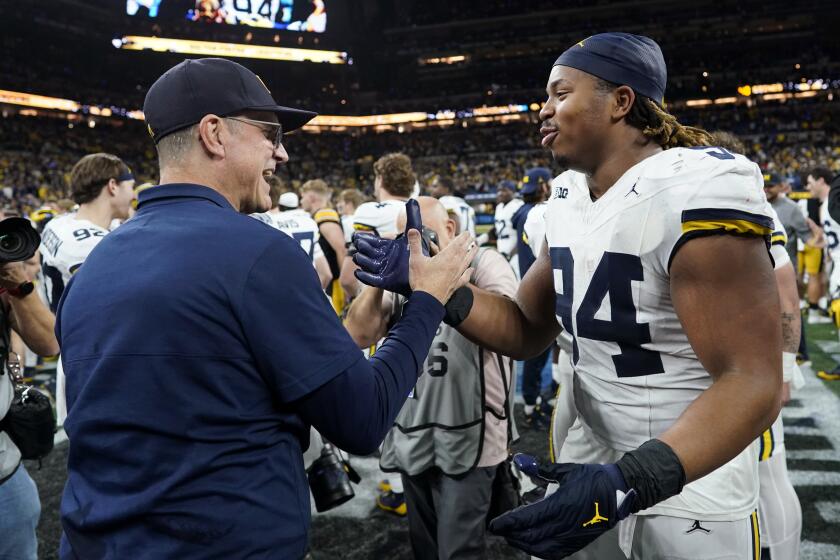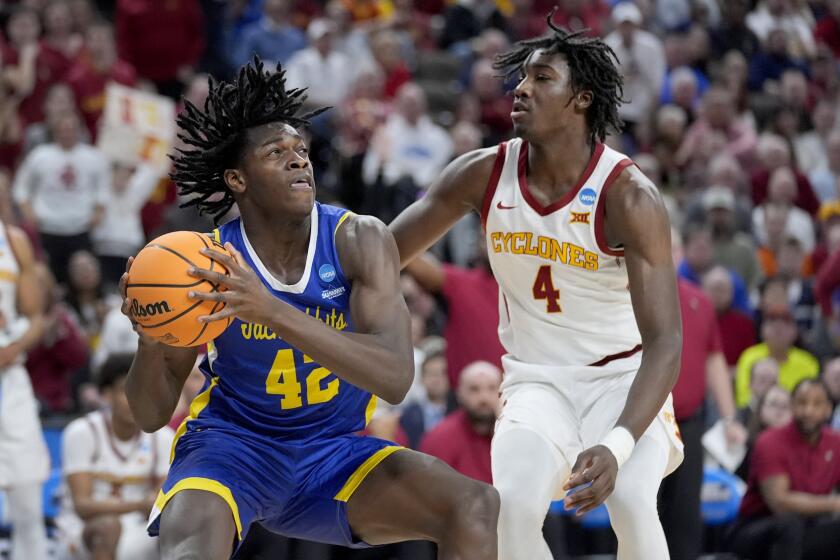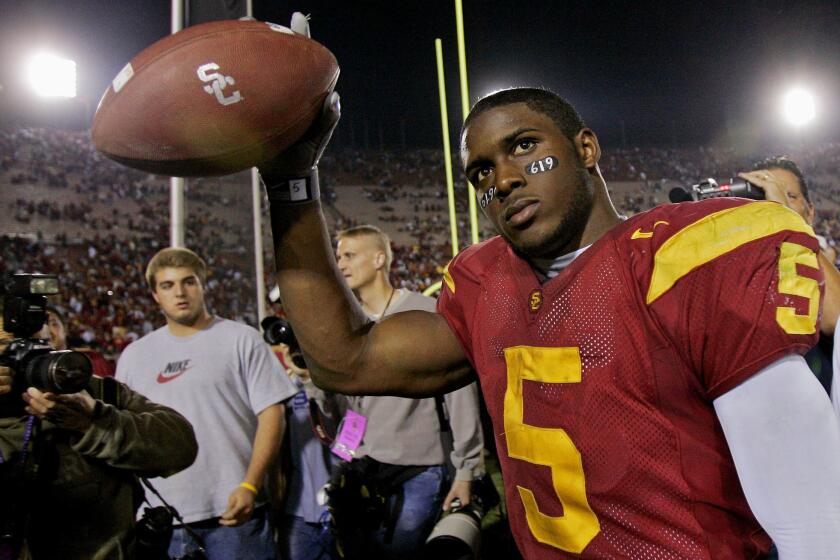Experts skeptical of ‘anti-concussion’ sports equipment
As scientists confirm that football and other high-impact sports can leave lasting brain damage, companies are marketing “anti-concussion” equipment to coaches, parents and children that, neurologists say, probably does not work.
“I wish there was such a product on the market,” Jeffrey Kutcher, chairman of the American Academy of Neurology’s sports section, said at a Senate hearing Wednesday. “The simple truth is that no current helmet, mouth guard, headband or other piece of equipment can significantly prevent concussions from occurring.”
The best equipment available didn’t prevent Steven Threet’s four concussions. Threet, a former Arizona State University quarterback, announced this year that he was quitting football, at age 21, fearing that another concussion could keep him from sipping coffee without shaking by the time he’s 35. He had already noticed his short-term memory deteriorating. And even though he hasn’t played for months, his migraines persist.
“There is a misunderstanding about concussion prevention and treatment” among athletes and the public, Threet testified at the hearing. “If a helmet could guarantee protection from concussions, I would still be playing football.”
Several products made for young players, from Pee Wee football on up, are promoted as having new technology that can detect or reduce concussions. For instance, the $149 Impact Indicator chin strap made by Battle Sports Science has a green and red light to “help” indicate whether a player has a concussion.
The Senate Committee on Commerce, Science and Transportation singled out the Brain-Pad LoPro mouth guard, which its manufacturer says creates “brain safety space,” and Riddell’s Revolution helmet, which is said to reduce the number of concussions by 31%. Riddell, which makes “the official helmet of the NFL,” misrepresented research that showed only a 2.6% decrease in concussions, Kutcher said.
Riddell officials did not testify at Wednesday’s hearing and could not immediately be reached for comment. But Thad Ide, the company’s senior vice president of development, told the Patriot-News newspaper in central Pennsylvania last year that no matter how advanced equipment becomes, its protection will have limits.
“We can’t stress enough that no helmet will prevent all concussions,” Ide said. “A concussion-proof helmet isn’t realistically achievable.”
The most effective way to prevent brain damage or even death after head injuries, according to Threet and neurologists, is proper recovery time. Threet would typically sit out for a week or two before returning to the game, he said, but recovery can take more than a month.
Because children have relatively heavier heads and rapidly developing brains, the frequency and severity of head injuries in children is even higher, making recovery time even more important for them, according to Ann McKee, a neurologist at Boston University. She has performed postmortem research on the brains of children, NFL players and soldiers.
Although some products may reduce the severity of a concussion, Sen. Tom Udall (D-N.M.) said he was worried that there was no standardized way to measure the credence of any sport equipment company’s marketing claims. He has asked the Federal Trade Commission to investigate such claims.
More to Read
Get our high school sports newsletter
Prep Rally is devoted to the SoCal high school sports experience, bringing you scores, stories and a behind-the-scenes look at what makes prep sports so popular.
You may occasionally receive promotional content from the Los Angeles Times.
